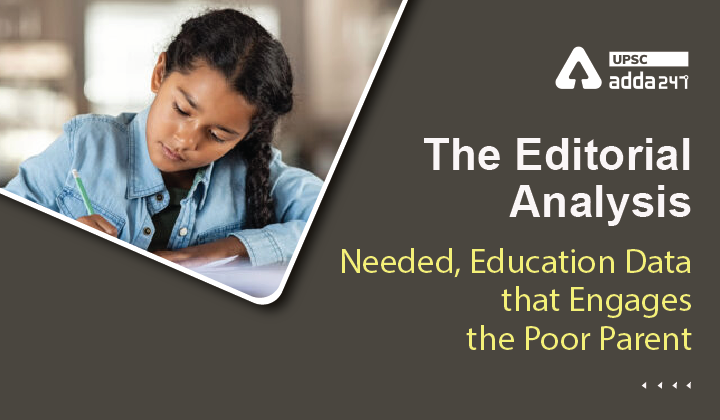Table of Contents
Education in India UPSC: Relevance
- GS 2: Issues relating to development and management of Social Sector/Services relating to Health, Education, Human Resources.
Issues in Education in India: Context
- Currently, we have education related data for topics like enrolments, retention, learning, infrastructure, and teacher training to understand the state of our public school system. However, how effective is the data to transformation of society is a topic of debate.
Education data: Key points
- Contrasting data: According to ASER 2019, Rajasthan was among the bottom five States in learning levels, while in NAS 2017, Rajasthan was among the top performers.
- Data on school education is collected to measure and monitor, fix flaws and reward achievements at the State and the national levels.
- Its end users are school administrators, government agencies, researchers, and civil society activists.
- Despite near consensus among policymakers and those who produce the data, that parents are one of the key constituencies of school data, and intense efforts to disseminate data among them, it is rarely used by poor parents.
- For them, schooling is about examination outcome, which is a proxy for learning, English language skills and a chance for secondary and graduate level degrees.
How data should be used?
- To inspire transformation, data has to be linked with a vision of school education which addresses the anxieties and aspirations of parents, and is actionable at the level of governance closest to them, i.e., the local administrative and political system.
- A vision should be developed that will manifest itself differently at the national, State, district and local levels and exist in both policy and non-policy forms .
- Presently, there is no vision of education below the national level, least of all at those which engage the marginalised.
- This vision has to be led by local political actors and become a central part of local politics which involves both formal actors such as political party workers, and non-formal ones such as community leaders.
Way forward
- It is only when data is connected with a locally developed and politically owned vision of school education that it will move beyond the administrator and the activist.
Read current affairs for UPSC





 TSPSC Group 1 Question Paper 2024, Downl...
TSPSC Group 1 Question Paper 2024, Downl...
 TSPSC Group 1 Answer key 2024 Out, Downl...
TSPSC Group 1 Answer key 2024 Out, Downl...
 UPSC Prelims 2024 Question Paper, Downlo...
UPSC Prelims 2024 Question Paper, Downlo...






